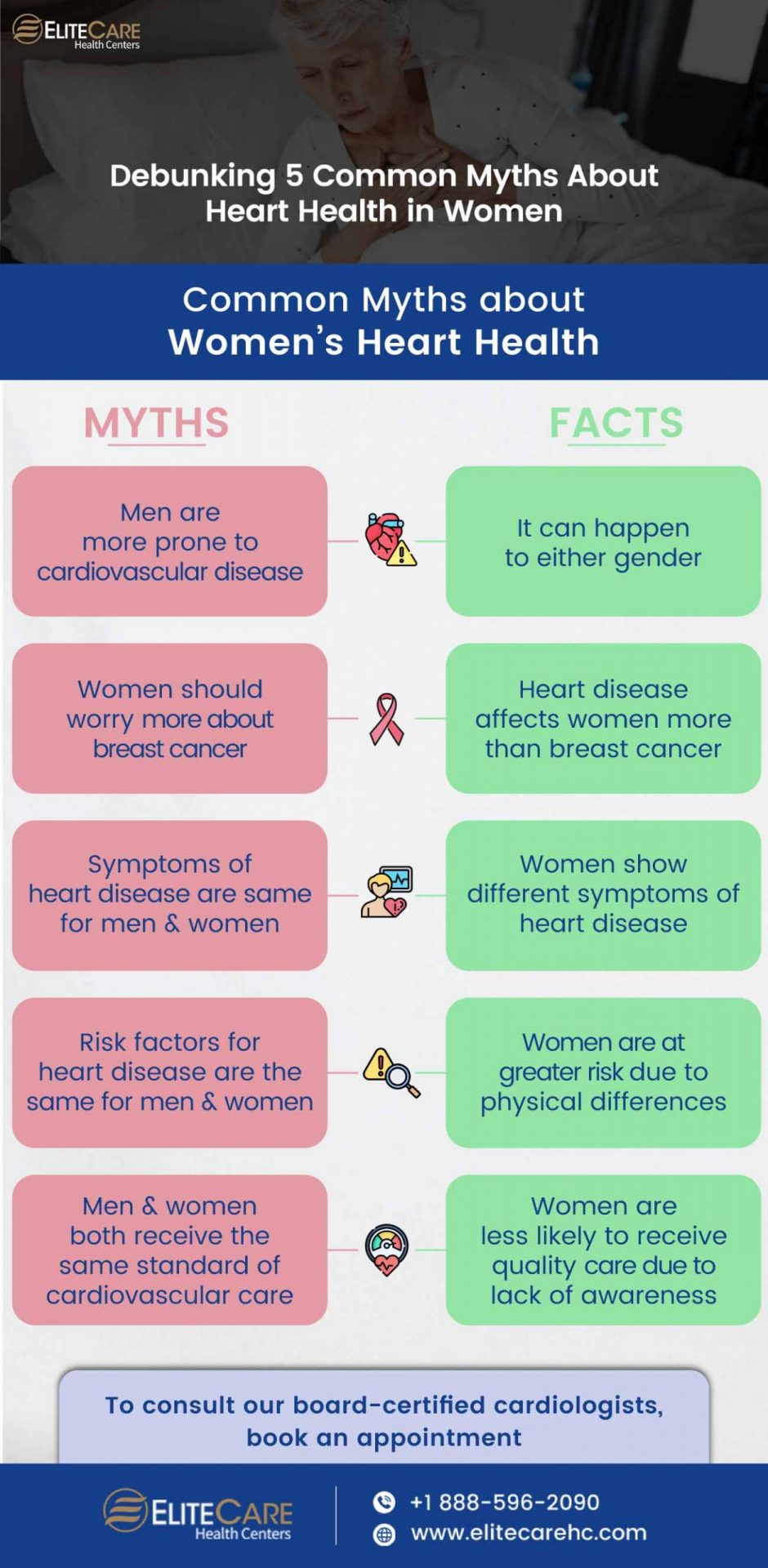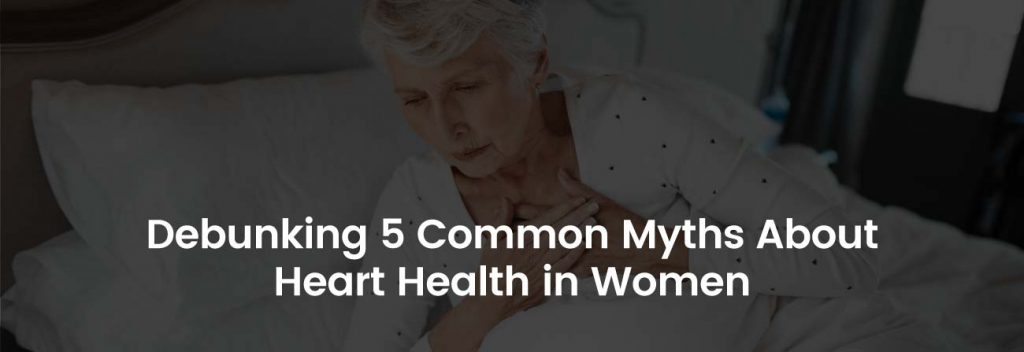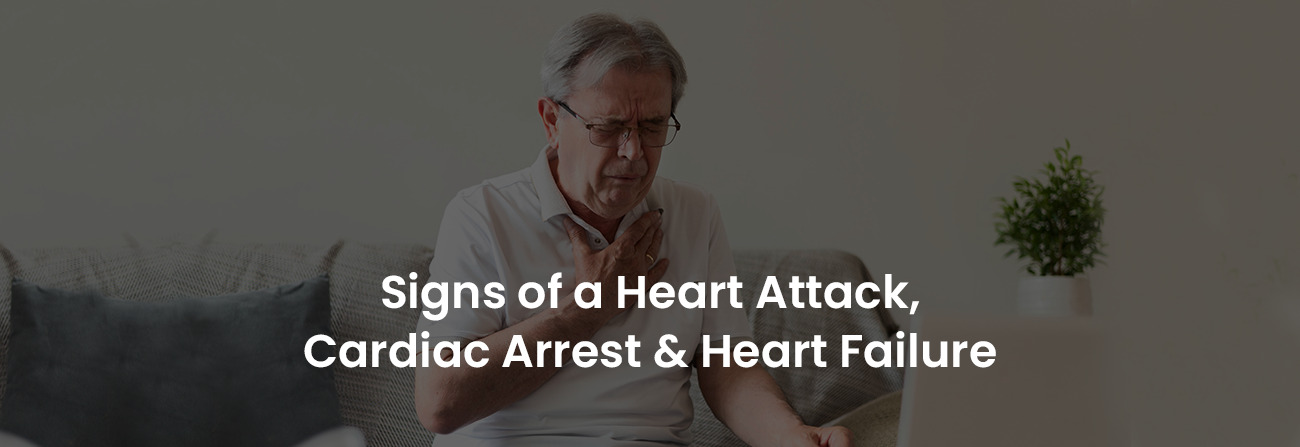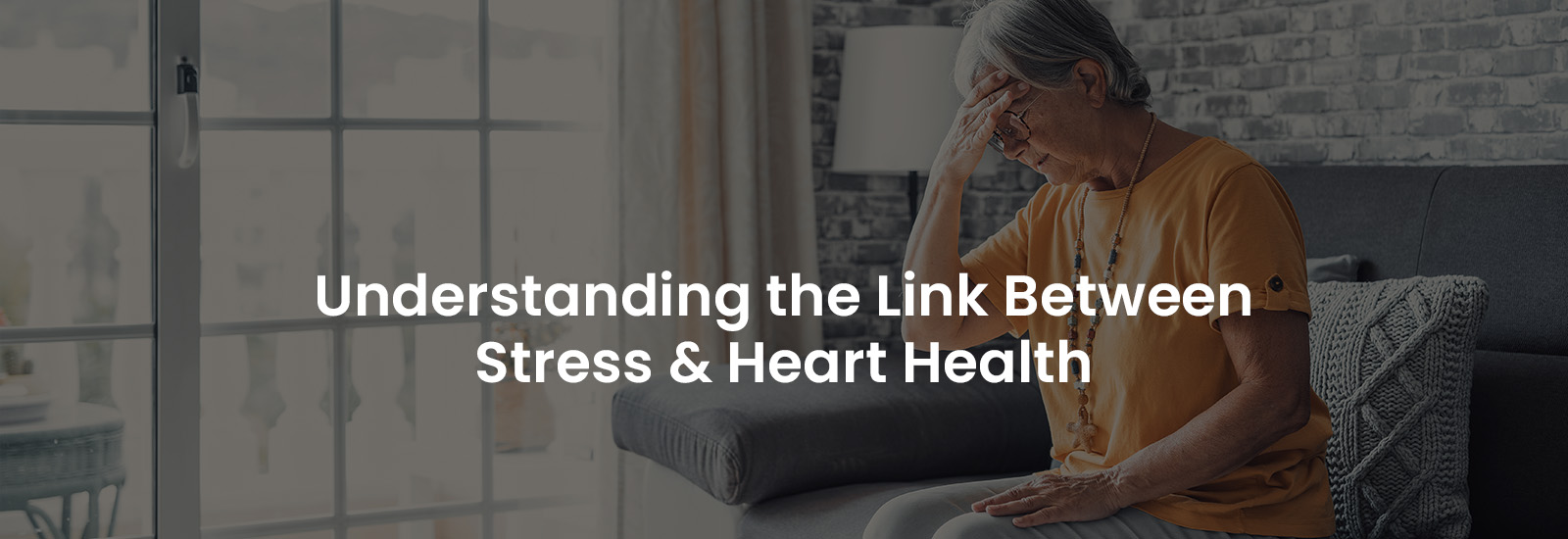
Heart disease is one of the leading causes of mortality among women in the United States. Lack of awareness and misinformation about women’s heart health contribute to this tragic statistic. Health issues such as high blood pressure, high cholesterol, which can lead to heart attacks and more have been mostly associated with men. But the numbers in the past few years have shown a spike in heart disease amongst women. Physical differences and the presence of other risk factors are the main reasons for women also developing cardiac issues.
How does women’s heart health differ from that of men? Let’s take a look at common myths and find out the truth.
Common Myths about Women’s Heart Health
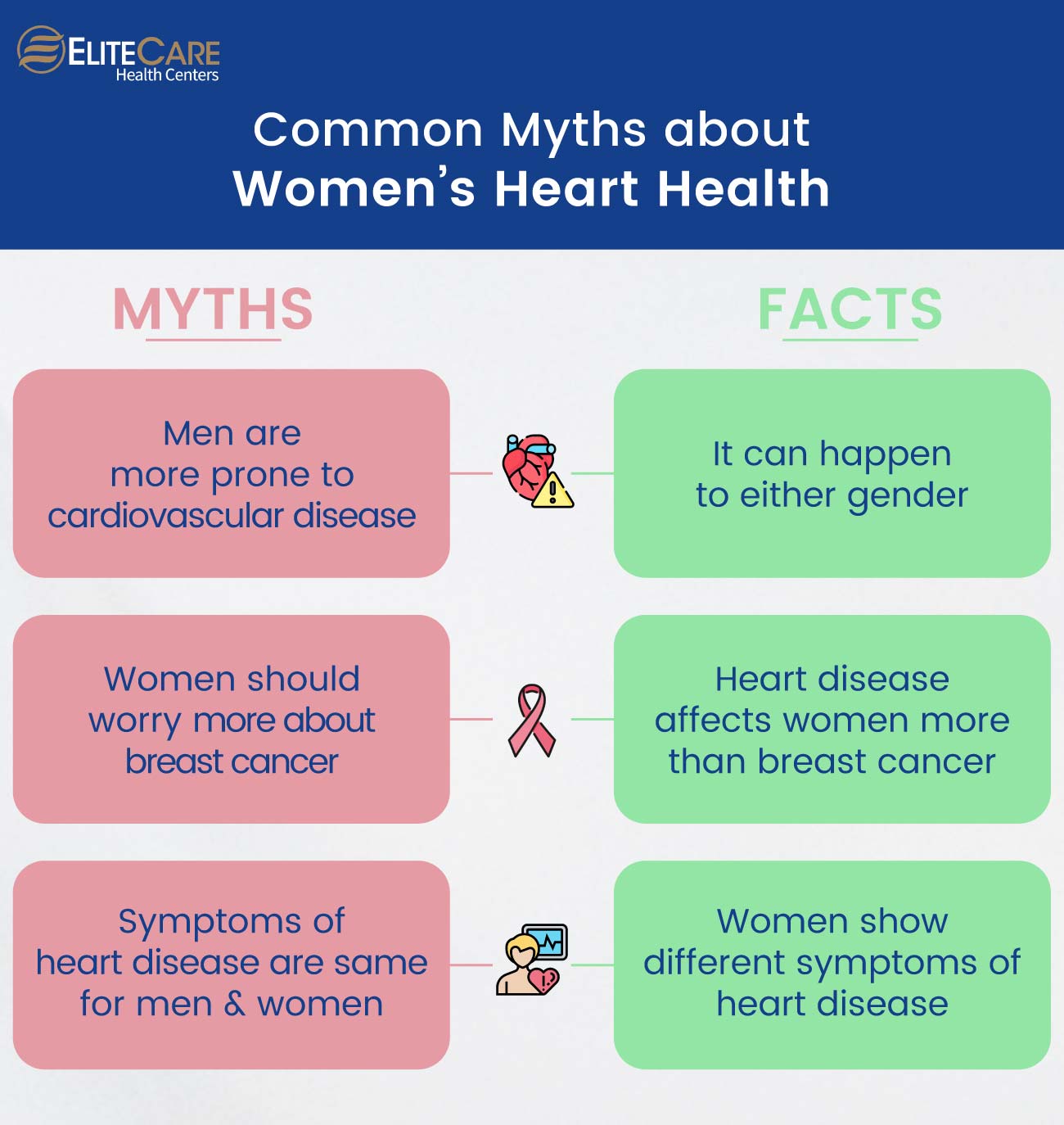
Myth 1: Men are more prone to cardiovascular disease
Myth 2: Women are at a higher risk of cancer than heart disease
According to studies, breast cancer affects at least 4 million American women and results in approximately 42,000 deaths every year. However, the number of women suffering from heart disease is significantly higher, with nearly 60 million women suffering from some form of heart disease and over 300,000 dying from it.
This could also be because breast cancer awareness is much greater than that of heart disease. Hence, diagnoses of heart conditions are mostly delayed by which time the complexity of the problem is increased. Recognizing early signs of heart disease and seeking medical attention at the earliest can resolve this issue significantly.
Myth 3: Heart disease symptoms are the same for men & women
While the most commonly recognized sign of heart problem in men is crushing chest pain, women experience symptoms that are vague and less noticeable. Women usually suffer from symptoms unrelated to chest pain which are as follows:
- Dizziness
- Unusual tiredness
- Pain in the arms or shoulders
- Uneasiness
- Shortness of breath
- Intense sweating
- Mild or intense discomfort in the jaws, shoulders, upper back, and upper abdomen.
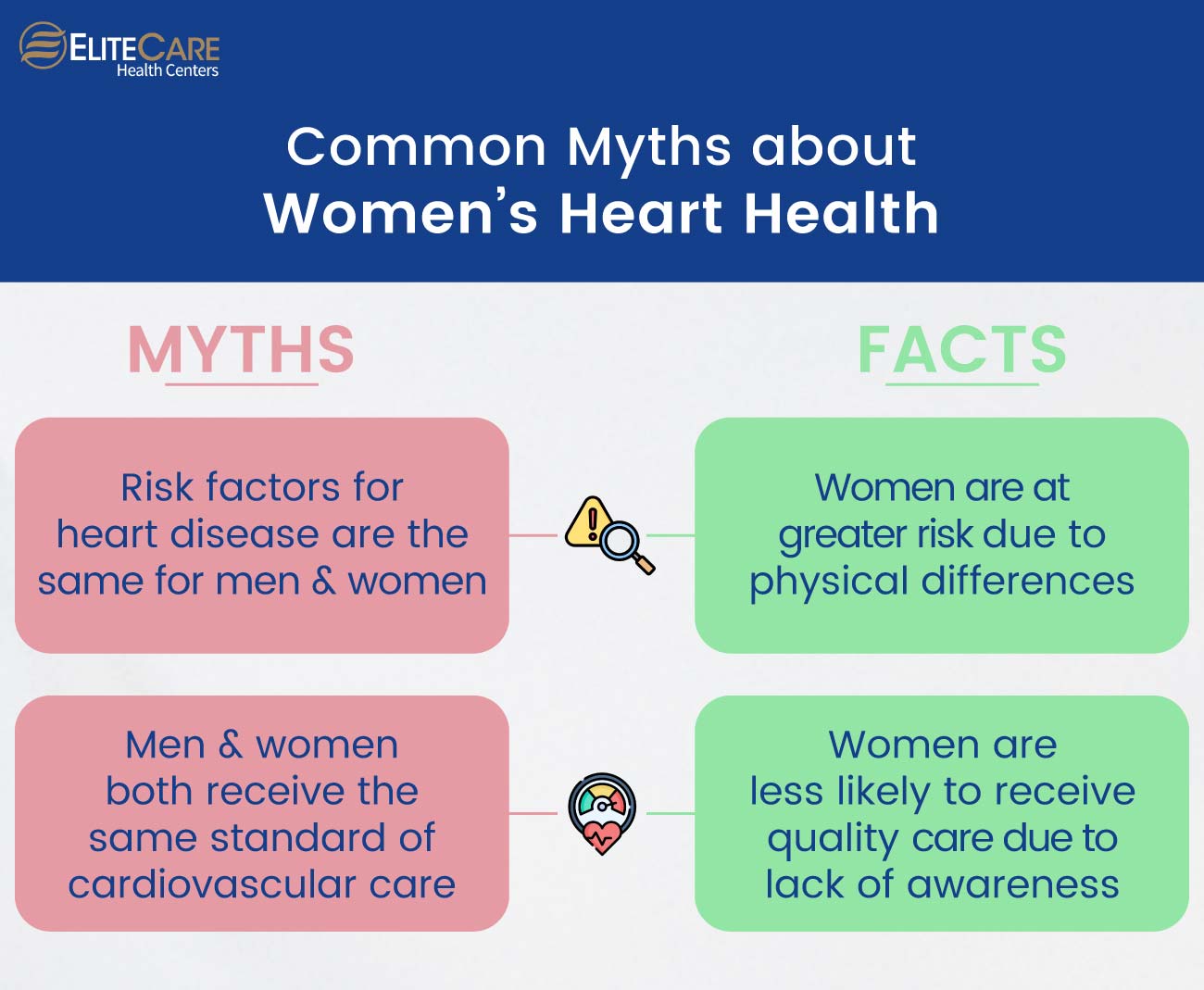
Myth 4: Heart disease happens in the same way for men & women
The risk factors for heart disease differ greatly for men and women. Physical changes and hormonal differences play a crucial role in maintaining heart health. Here are a few factors that put women at an increased risk of developing heart disease.
- Size & density: A woman’s heart and some of its chambers are smaller than those of a man. Also, the walls of the chambers are thinner and the veins are finer which increases the risk of heart disease.
- Function: A woman’s heart pumps faster but ejects less blood with each pump than a man’s heart, making her heart weaker.
- Hormones: One of the main female hormones, estrogen, relaxes the walls of the arteries and helps blood pass through more easily. However, as menopause approaches, the production of estrogen drops, reducing the flexibility of the arteries and increasing the risk of heart disease and other cardiovascular events.
- Menopause: Women transitioning through menopause are at a higher risk of heart disease due to hormonal and physical changes in their bodies. At the onset of menopause, women tend to experience elevated blood pressure, and increased LDL cholesterol, glucose, and triglyceride levels which can put them at significant risk of heart disease.
- Plaque buildup: The largest arteries supplying blood to the heart are the most commonly affected by plaque buildup in men. Whereas, women are more likely to develop this buildup in the heart’s smallest blood vessels, putting them at significant risk of blockage.
- Size & density: A woman’s heart and some of its chambers are smaller than those of a man. Also, the walls of the chambers are thinner and the veins are finer which increases the risk of heart disease.
Myth 5: Men & women both receive the same care for heart disease
A study published by the American Journal of Medicine revealed that women are less likely to get care consistent with established guidelines for heart attacks. Therefore, they are more likely to die from the condition. In most cases, women don’t receive standard care for heart disease because their symptoms differ, leading to a late diagnosis. Women are less likely to receive the following standard treatments if they are suffering from heart disease:
- Getting aspirin or a beta blocker within 24 hours of a heart attack
- Undergoing any type of invasive procedure to treat cardiac issues
- Receiving anti-blood clotting therapy within 30 minutes of being admitted to the hospital
- Receiving timely coronary angioplasty within 90 minutes of hospitalization where a tiny balloon is inserted into the artery to clear a blockage
Far too often, women suffering from heart disease are not accurately diagnosed and do not receive timely care which is crucial to surviving a cardiac event. But the most shocking evidence pointing to the gender gap in cardiology was published in a study in the journal Women’s Health Issues. It revealed that an ambulance transporting heart patients to the Emergency Department after a 911 call was less likely to have flashing lights and sirens turned on when a woman was being transported.
Key Takeaway
To conclude, it is evident that women have more risk factors for developing heart diseases than men and we need to spread awareness about the same. We must accept that heart disease does not distinguish between men, women, or any gender or age group. Recognize the signs and consult a doctor at the earliest to prevent any severe complications. Also, do not skip annual screenings and tests to stay ahead of the risks. To consult the best primary care physicians and cardiologists in Florida, contact EliteCareHC or visit your nearest center to schedule an appointment.
